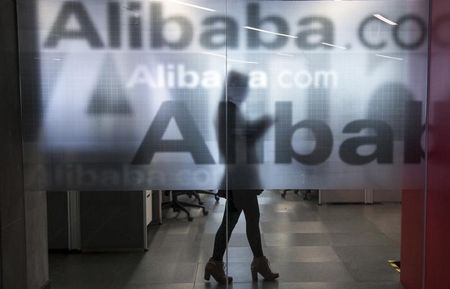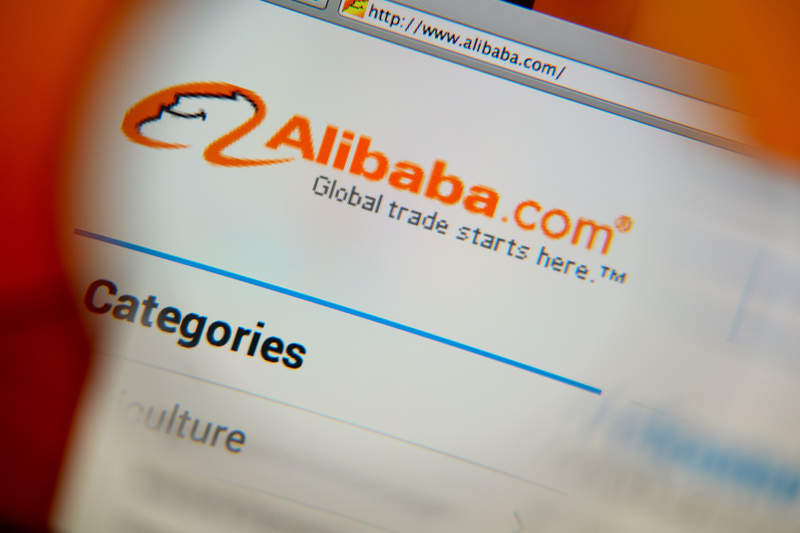By Jessica Toonkel and Jennifer Saba
NEW YORK (Reuters) - The vast majority of Americans have never heard of Alibaba, the Chinese e-commerce company which is on the verge of potentially the world's largest initial public offering.
An Ipsos poll conducted for Thomson Reuters found that 88 percent were not aware of Alibaba Group Holding, which on Monday raised the price range of its initial public offering. The IPO, expected later this week, could overtake the current record, Agricultural Bank of China Ltd's $22.1 billion listing in 2010.
A juggernaut in China, Alibaba sells more than both Amazon.com Inc and eBay Inc combined. It is responsible for 80 percent of online sales in the world's second biggest economy. It operates or works with a number of different businesses there including consumer online marketplace Taobao and payment service Alipay. U.S. businesses can buy bulk supplies from China through its alibaba.com portal.
As a company relatively unknown in the United States, Alibaba could struggle to win much business there, advertising and brand experts said. Consumers pay for goods online with credit or debit cards, and are often reluctant to do business with companies they've never heard of, particularly after recent high-profile hacking problems, said Sarita Bhatt, former global head of strategy at Havas Worldwide, a New York-based advertising agency.
Both Amazon and Ebay spend heavily to help win the recognition and trust of consumers: last year, Amazon.com dedicated roughly $300 million to advertising while eBay spent about $50 million, according to estimates from research firm Kantar Media.
Of course, many U.S. consumers are driven by a good bargain. Shannon Tanzer, a poll participant in Chippewa Falls, Wisconsin, said she had never hear of Alibaba but could be swayed to try. "I just want the best price," she said.
The poll's margin of error was 2.8 percent and 1,604 people were surveyed.
An Alibaba spokesman declined to comment, citing the company's quiet period before the IPO.
STARTING SMALL
Alibaba's precise plans for growing in the United States are unclear, and the IPO itself could raise Alibaba's profile.
"After being listed in the U.S., we will develop our business in Europe and in the U.S.," founder Jack Ma told journalists on Monday. "We will not give up the Asia market because, as I would say, we are not a company from China, we are an Internet company that happened to be in China."
Whatever it decides to do, its lack of brand recognition is hardly insurmountable. Foreign stores from IKEA Group, of Sweden, to Fast Retailing Co's Uniqlo, of Japan, have established footholds in the United States despite being more or less unknown to Americans beforehand. So have foreign digital companies like online streaming music service Spotify, which is Swedish.
"The wise thing would be to start small, investigate the market, investigate the consumers, and investigate the competition and try and build a model that is attractive to Americans," said Martin Sorrell, who heads up the world's largest ad agency WPP.
Indeed, Alibaba has set up a U.S. investment division and has been building up a presence in the United States Last October, it led a roughly $200 million investment round in U.S. retail site ShopRunner Inc. The stake in ShopRunner, which rival's Amazon Prime service and works with dozens of U.S. retailers, will give Alibaba a way to learn about online shopping in America.
Alibaba unveiled its first direct-to-consumer online shop in the United States in June, the website 11main.com, which caters to a niche audience and specializes in one-of-a-kind items not found at larger retail chains.
11 Main may be the company's best bet for winning American buyers, said Bhatt.
"It sounds like a local brand and its fun and simple," she said, adding that the company needs to explain to consumers what it does differently or better than rivals.
One strategy Alibaba could pursue to win instant U.S. recognition is to buy a sports team, suggests David Srere, co-CEO and chief strategy officer at Siegel+Gale, a global strategic branding firm. The company has already tried that in China, agreeing to pay 1.2 billion yuan ($192 million) for a stake in China's most popular soccer team, Guangzhou Evergrande.
Alibaba lost an opportunity of ensuring getting in the headline by not buying the Los Angeles Clippers when it was for sale earlier this year, Srere said. The basketball team sold for $2 billion.

"That would have been a dramatic entry into the market," he said.
(Reporting by Jessica Toonkel and Jennifer Saba in New York, editing by Dan Wilchins and Peter Henderson)
